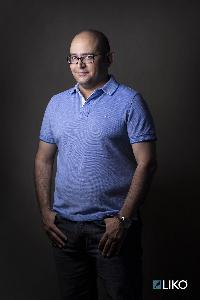No degree, but 5 years experience... Thread poster: infact
|
|---|
infact
Local time: 07:46
French to English
Hello everyone,
I have been translating full-time for 5 years. I have been looking for a distance-learning program in mechanical, automotive and plastics engineering for quite some time, and I can't find anything that fits my profile. I have a BA in French, so the only "education" I have received has been my work experience in a small translation company.
I have been freelance for over one year now and would really like to specialize in mechanical, automotive and/or... See more Hello everyone,
I have been translating full-time for 5 years. I have been looking for a distance-learning program in mechanical, automotive and plastics engineering for quite some time, and I can't find anything that fits my profile. I have a BA in French, so the only "education" I have received has been my work experience in a small translation company.
I have been freelance for over one year now and would really like to specialize in mechanical, automotive and/or plastics engineering. I live in France and I translate from French to English only.
Can anyone help me find what I am looking for?
Thanks! ▲ Collapse
| | | |
I have no degree in translation, but I am a Telecommunications Engineer by training, and I have been an English language teacher and a translator for more than 25 years! Long before computers and Internet came into the picture.
I have become (or about to become) a member to some prestigious professional bodies (including stage-3 exams to become an ITI qualified member) simply by showing a detailed record of any work I have undertaken during the last 5 years.
Experience ... See more I have no degree in translation, but I am a Telecommunications Engineer by training, and I have been an English language teacher and a translator for more than 25 years! Long before computers and Internet came into the picture.
I have become (or about to become) a member to some prestigious professional bodies (including stage-3 exams to become an ITI qualified member) simply by showing a detailed record of any work I have undertaken during the last 5 years.
Experience in any scientific field is worth its weight in gold, if I can say that!
Since you are interested in Engineering so much, I would suggest that you take a B.Sc. degree in a field of your choice and then apply your knowledge to translation. Once you have mastered engineers' way of thinking everything else is quite simple really!
In my opinion, and without wishing to belittle the importance of technical translation courses offered by universities, a little bit of everything is not what professionals need. Courses only cater for a general background knowledge. Experience will provide the rest.
Take a look at any instructions manual that you may land your hand on. Read it. Does it make any sense! If it does, it must be a rare exception! Most often it does not! This is because the person who translated it was not trained to do that!
There are only a handful of engineers/translators around and that's why they can command such high prices!
In my humble opinion, you should be looking for an engineering degree first before anything else!
And one other thing. Let me give you an example.
There are so many books around on a particular subject. Are all of them good? Do they make for easy reading besides being informative and explanatory? Definitely not! This is because the writer may or may not have the flair for writing! It's like teachers. What makes a good or a bad teacher? The talent for communication, you either have it or not. Would you ever buy a book on the Internet? Without being able to browse through it first?
I strongly believe that the fields of technical writing and translation should be combined with a degree in engineering and having or developing a talent for communication!
You know what they say about engineers, if you send one to another part of the world without any knowledge of the language spoken there, he will find a way to communicate with the layman. That's a rare talent indeed!
I do hope that I have given you some food for thought... in the meantime I would like to wish you good luck in whatever you decide to do with your future!
[Edited at 2005-05-06 16:44] ▲ Collapse
| | | | Rahi Moosavi 
Canada
Local time: 01:46
Member (2004)
English to Persian (Farsi)
+ ...
Totally agree with you, I'm a mechanical engineer and get loads of technical jobs. People trust their technical jobs with a translator/engineer more for obvious reasons. My backup is my 15 years of work as a translator.
| | | | | Open University... | May 6, 2005 |
Hi,
Like you, I'm only qualified as a linguist and my other experience comes from practical work experience and personal interests.
How about the UK Open University? I've never done any of their courses but I know people who have, quite successfully and happily. The website is: www.open.ac.uk
The courses can be costly but are very convenient and may be what you're looking for.
In any case,... See more Hi,
Like you, I'm only qualified as a linguist and my other experience comes from practical work experience and personal interests.
How about the UK Open University? I've never done any of their courses but I know people who have, quite successfully and happily. The website is: www.open.ac.uk
The courses can be costly but are very convenient and may be what you're looking for.
In any case, I hope this info helps.
Aisha ▲ Collapse
| | |
|
|
|
Rafa Lombardino
United States
Local time: 22:46
Member (2005)
English to Portuguese
+ ...
| Same story here! | May 6, 2005 |
When I was about to start high school, my parents asked me if I wanted to go a little further and attend a technical high school, which would prepare me, at the same time, to start college in three years and provide me with a technical degree so that I could start working right away in the field of my choice. The year was 1995 and computer skills were about to become mandatory, so there were no doubts about what would be the best for my future. From 1995 to 1997, I studied at two technical high ... See more When I was about to start high school, my parents asked me if I wanted to go a little further and attend a technical high school, which would prepare me, at the same time, to start college in three years and provide me with a technical degree so that I could start working right away in the field of my choice. The year was 1995 and computer skills were about to become mandatory, so there were no doubts about what would be the best for my future. From 1995 to 1997, I studied at two technical high schools from 7:15am to 5:15pm, sometimes coming back for the internship available from 7:30pm to 10:30pm. Those were tough times, but the BA in Computer Sciences was worth it.
If only I knew, back then, that there was such a program for Translating and Interpreting technical high school...
I don't regret my past choices, but if I had any idea that I would end up being a translator, I would have attended the technical high school for the field. After graduating from high school, I started working as an English teacher at a local language school and in 1999 started college with a major in Journalism. Now I have a second BA, in Social Communications, but no degree in the field I work. Sometimes, 8 years of experience as a freelance translator does not seem to be enough.
This year, I heard about an extension course at the University of California in San Diego (UCSD), which I'm about to start next semester. They only offer classes for English and Spanish, but I intend to take as many classes as I can (the mandatory introduction to translating and interpreting and the ones for medical, business, and legal fields) so that I can graduate next year and go on to becoming certified in both Spanish and Portuguese (my native language) with the ATA and, who knows, one day with the State of California. By then, 10 years of experience and these certifications under my belt will, hopefully, look great in my business card.
[Edited at 2005-05-06 17:06]
[Edited at 2005-05-06 17:06] ▲ Collapse
| | | | Parrot 
Spain
Local time: 07:46
Spanish to English
+ ...
Sometimes there's not much of a choice.
Rafaela Lombardino wrote:
If only I knew, back then, that there was such a program for Translating and Interpreting technical high school...
In my case, the T&I curriculum was approved for implementation when I was graduating MA (talk about "too late the hero") and had already been working 3 years in language services. So there was no question of a second MA that soon. Besides, it was going to take time for teacher training to improve, and my bosses were already packing me off for further training in Europe. I suppose I got into the career in its "Erasmus" phase (you had to be itinerant enough to get somewhere...)
The funny thing was, that Europe wasn't that easy to organize in terms of getting the kind of training you wanted, either. You'll never have everything you want served on a silver platter, I guess. The most straightforward translation being taught where I landed was literary, and I had come from a PCO (professional congress organizer). I managed to get a scholarship with a medical research team to continue specializing, and worked in a technical company after that. The irony was, that things finally took off in terms of training 7 years after my research apprenticeship... and even then, teacher training still continued to be a problem.
Finally, the "products" graduated, and here's the rub (I'm pretty much in touch with the younger generation in this): their biggest complaint is that they never had the time to specialize. In a word, we who had studied other things had the content, and they had the techniques. Also, that a greater part of learning the techniques had been devoted to basic proficiency tasks (what you might do, for instance, in a BA French course, or even in a basic language course). In short and sum, I'm afraid this is proving the worn-out adage that learning T&I is a lifetime endeavor. Also, that it can be "attacked" from several very different angles.
Not to go off-topic, though -- I don't discard the possibility that a simple workshop can equip one with specialized know-how. Professional training (vocational) courses as they are conceived in France might just be of interest. If I had the time, I'd go into ceramics, for instance, but this year, legal German is taking up the four hours I can spare every week. I suppose you have to pay a price for everything you want.
| | | | Rafa Lombardino
United States
Local time: 22:46
Member (2005)
English to Portuguese
+ ...
| Specialization | May 6, 2005 |
Parrot wrote:
I managed to get a scholarship with a medical research team to continue specializing, and worked in a technical company after that. The irony was, that things finally took off in terms of training 7 years after my research apprenticeship...
In a word, we who had studied other things had the content, and they had the techniques.
Not to go off-topic, though -- I don't discard the possibility that a simple workshop can equip one with specialized know-how.
I would say that the situation you're describing is somewhat similar to mine. I'll start that translation course at UCSD extension, which offers specific specializations for the English-Spanish language pair. Spanish is my 3rd language, coming after Portuguese and English. In a way, I would be in disadvantage when compared to my potential classmates, since most of them will be Spanish speakers or will have Spanish as their second language. On the other hand, I'll have the translating experience (technique) that they do not have as native speakers or majors in Spanish. I believe that, in the end, I'll benefit from the specific classes (content wise) and will have to constantly seek the specialization within the field that proves to be the dominant among future projects I may be granted. Workshops would be the best alternative for this complementary specialization for people that have been through similar experiences as we have.
| | | | Parrot 
Spain
Local time: 07:46
Spanish to English
+ ...
| Right, Rafaela | May 6, 2005 |
Our growth curves are very personal. There is no ISO-standardized translator. I'll have been 23 years in language services in October, and in all that time I've learned there is no magic formula, no mould you can squeeze a person into in order to get a "translator".
Then, what the experts say about it is telling. We "steep" with age, and it seems to be a process you can guide but can't expedite. Somewhere along the way those young 'uns are going to get their sought-after spec... See more Our growth curves are very personal. There is no ISO-standardized translator. I'll have been 23 years in language services in October, and in all that time I've learned there is no magic formula, no mould you can squeeze a person into in order to get a "translator".
Then, what the experts say about it is telling. We "steep" with age, and it seems to be a process you can guide but can't expedite. Somewhere along the way those young 'uns are going to get their sought-after specializations and we're going to perfect and diversify our techniques and strategies. So, maybe I'm wrong, but I'd prefer not to look at the paper for its face value and simply do the things I love and that awaken my interest, enjoying my life as I learn. And there, the sky's the limit.
Cynthia has taken the self-assessment step, which is important in understanding one's own growth curve. The next step is profiling the solution, which will always involve exploring and negotiating the environment and its limitations. ▲ Collapse
| | |
|
|
|
infact
Local time: 07:46
French to English
TOPIC STARTER | Thanks everyone | May 7, 2005 |
I would like to thank you all for the replies. I never thought of actually going for a BS in Mechanical engineering, but like Parrot said, I love to learn and for some strange reason I love mechanical engineering... Ten years ago my husband had to explain to me how an engine worked...I certainly have come a long way!!! I love mechanical engineering... Ten years ago my husband had to explain to me how an engine worked...I certainly have come a long way!!!
I will definately take a look at the open university, but does anyone know of a way to get a degree... See more I would like to thank you all for the replies. I never thought of actually going for a BS in Mechanical engineering, but like Parrot said, I love to learn and for some strange reason I love mechanical engineering... Ten years ago my husband had to explain to me how an engine worked...I certainly have come a long way!!! I love mechanical engineering... Ten years ago my husband had to explain to me how an engine worked...I certainly have come a long way!!!
I will definately take a look at the open university, but does anyone know of a way to get a degree by distance learning??? I have two small children that need their mommy at home (not 10,000 miles away taking classes!!). ▲ Collapse
| | | | Parrot 
Spain
Local time: 07:46
Spanish to English
+ ...
| Open universities | May 7, 2005 |
Cynthia Rosenacker wrote:
I will definately take a look at the open university, but does anyone know of a way to get a degree by distance learning??? I have two small children that need their mommy at home (not 10,000 miles away taking classes!!).
Open universities offer that possibility. I am only familiar with the Spanish system, in which you are given your materials to study and are supervised and tested twice or thrice a year (Higher degree students go for consultation and the training is more personal). However, the lack of contact is sometimes a demotivating factor, a problem now being solved by on-line classes. How you will take it is pretty much determined by personal circumstance factors.
Why I mentioned FP: some things, like mechanics and manual skills, hold more interest in hands-on environments. FP has the advantage of being a widely-disseminated program and I'm sure a place like Grenoble is well-equipped for it. Going physically to classes might not be that much of a demand in that sense if it can be organized. And doing it in France would mean valuable enrichment in source vocabulary, something you'd have to back-translate if you did it by distance in the UK. Hope the info helps you evaluate.
| | | | Jeff Allen 
France
Local time: 07:46
Multiplelanguages
+ ...
| look at a BTS diploma in France in engineering fields | May 8, 2005 |
Konstantinos Karanikas wrote:
Since you are interested in Engineering so much, I would suggest that you take a B.Sc. degree in a field of your choice and then apply your knowledge to translation. Once you have mastered engineers' way of thinking everything else is quite simple really!
Take a look at any instructions manual that you may land your hand on. Read it. Does it make any sense! If it does, it must be a rare exception! Most often it does not! This is because the person who translated it was not trained to do that!
Cynthia lives in France. Cynthia, I suggest you look at 2-year BTS diploma in engineering fields. You can find them in the automotive and other fields. This way you would not need to study 10,000 miles from home, but maybe much closer.
As for reading instructions manuals, I've written and translated them in different areas and was a trainer of technical writing and translation at Caterpillar many years ago. It's not just that people have not been trained in technical translation. Some technical writers also have not been trained in technical writing.
Jeff
http://www.geocities.com/jeffallenpubs/
| | | | infact
Local time: 07:46
French to English
TOPIC STARTER | BTS in French | May 9, 2005 |
Thanks Jeff, but my main problem is getting the English translation for documents I have in French. I understand mostly everything I read in my technical documents (they are in French) but I often have a hard time choosing the right English correspondance... For example, one document uses "Limiteur de pression" for about five different components on a hydraulic unit. In English there is the "pressure limiter" and the "pressure relief valve". My problem is that I am sure both words exist for a... See more Thanks Jeff, but my main problem is getting the English translation for documents I have in French. I understand mostly everything I read in my technical documents (they are in French) but I often have a hard time choosing the right English correspondance... For example, one document uses "Limiteur de pression" for about five different components on a hydraulic unit. In English there is the "pressure limiter" and the "pressure relief valve". My problem is that I am sure both words exist for a reason and, in order to translate correctly, I have to know what the difference between them is. Since I don't have a technical backround I have to rely on Engineering forums on the web (which by the way are great... http://www.eng-tips.com/groups/ for example). ▲ Collapse
| | |
|
|
|
| | | "Four years ago I couldn't even spell engenier, and now I are one!" | Jun 11, 2005 |
Konstantinos Karanikas wrote:
I strongly believe that the fields of technical writing and translation should be combined with a degree in engineering and having or developing a talent for communication!
I would never have thought such a skill set possible for a US
American engineer when I graduated as an electrical engineer
twentyfive years ago. The EE department actively discouraged its
students from acquiring a foreign language. In fact, it was
specifically disallowed.
So when I saw Alfred E. Newman's grinning face one day on a poster
over the caption: "Four years ago I couldn't even spell engenier, now I are one!", I could only shake my head. Believe me, it shows
in the technical documents I have to wade through every day.
Nowadays there are dual majors in engineering and foreign
language. The University of Rhode Island and Lafayette
University in Pennsylvania offer them. Rose-Hulman Institute of
Technology even offers a degree in engineering and technical
translation. And these are reputable American universities.
I only wish the EE department had given me credit toward graduation
for my language skills. I hope I've been able to teach myself to
communicate adequately in writing since graduation. Maybe the
latest generation of American engineers will have an easier time
learning how to spell correctly.
| | | | To report site rules violations or get help, contact a site moderator: You can also contact site staff by submitting a support request » No degree, but 5 years experience... | CafeTran Espresso | You've never met a CAT tool this clever!
Translate faster & easier, using a sophisticated CAT tool built by a translator / developer.
Accept jobs from clients who use Trados, MemoQ, Wordfast & major CAT tools.
Download and start using CafeTran Espresso -- for free
Buy now! » |
| | Trados Studio 2022 Freelance | The leading translation software used by over 270,000 translators.
Designed with your feedback in mind, Trados Studio 2022 delivers an unrivalled, powerful desktop
and cloud solution, empowering you to work in the most efficient and cost-effective way.
More info » |
|
| | | | X Sign in to your ProZ.com account... | | | | | |











